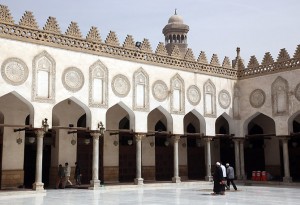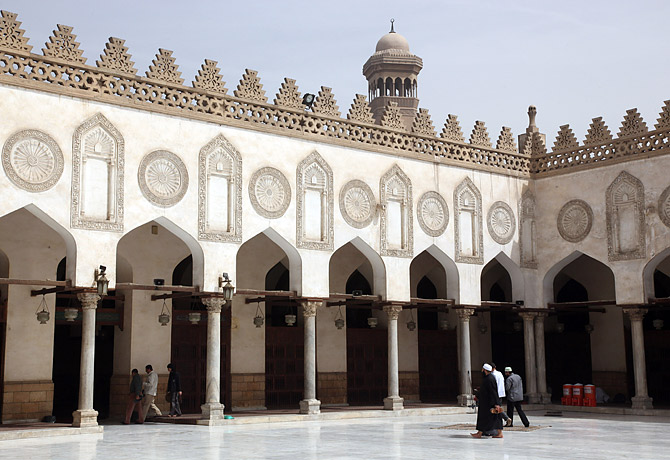
Al-Azhar’s Council of Senior Scholars submitted its objections to the new sukuk law to the Economic Committee at the Shura Council, Tuesday.
Abdel Halim Al-Gamal, deputy head of the Economic Committee at the Shura Council, said that the objections were “welcomed unanimously” by the Committee.
He said that the Council objected to articles 1, 2, 3 4, 9, 11, 20, 22 and 30.
“The scholars objected to issuing sukuk for religious endowments because they violate Sharia Law,” said Al-Gamal.
Scholars also objected to Article 1 of the sukuk law which says that “sukuk should be issued for a limited duration”, however, they say, the law has not specified any definite timeframes.
According to Sharia Law, say the scholars, sukuk and other investment funding tools, must have specific time periods for the life of the investment.
The Council recommended that the duration of sukuk issued on any asset should not exceed 25 years.
Scholars also objected to Article 4 of the law, which, whilst preventing the use of sukuk on state assets, allows for sukuk to be issued indirectly for investments made on such assets, thereby “opening a back door”, as one scholar put it, for private ownership of state assets.
Another cause for contention was Article 20. This stipulates that the president and the minister of finance have the last say on whether sukuk abide by Sharia Law. The scholars objected to this article on the grounds that it violated Article 4 of the newly-adopted constitution, which states that this is the exclusive province of Al-Azhar.
“Al-Azhar has approved the sukuk law,” said Mohamed Al-Fekki, chairman of the Economic Committee at the Shura Council. “The objections made by the Council aim, however, for some improvements and amendments to the law. There are differing viewpoints here.”
“There is a consensus of approval from Al-Azhar,” said Al-Gamal. “However, many parties and political sides including the Freedom and Justice Party have objected to Al-Azhar’s revisions.”
He continued: “All the objections came in accordance with the Al-Nour Party reservations.”
The Salafi party had lobbied, in cooperation with Al-Azhar Grand Shaykh, Mohamed Ahmed Al-Tayyib, early in April, for the law to be reconsidered by the Council of Senior Scholars, holding that a number of articles were in violation of Sharia Law.
Mohamed Al-Naghy, a government representative at the Shura Council, also called on the Council “to revise and rephrase the articles in accordance to… [Sharia] law”, according to Al-Gamal.
Al-Gamal confirmed that the articles will be discussed by the Shura Council in future sessions, and will then be forwarded to the General Committee of the Shura Council in order to start the voting process on the articles.
“I think the law will get the [necessary] votes,” he said. “In this case it will be sent to the President for ratification and will then be published in official newspapers the day after.”
The sukuk law was approved by the Shura Council in March.




